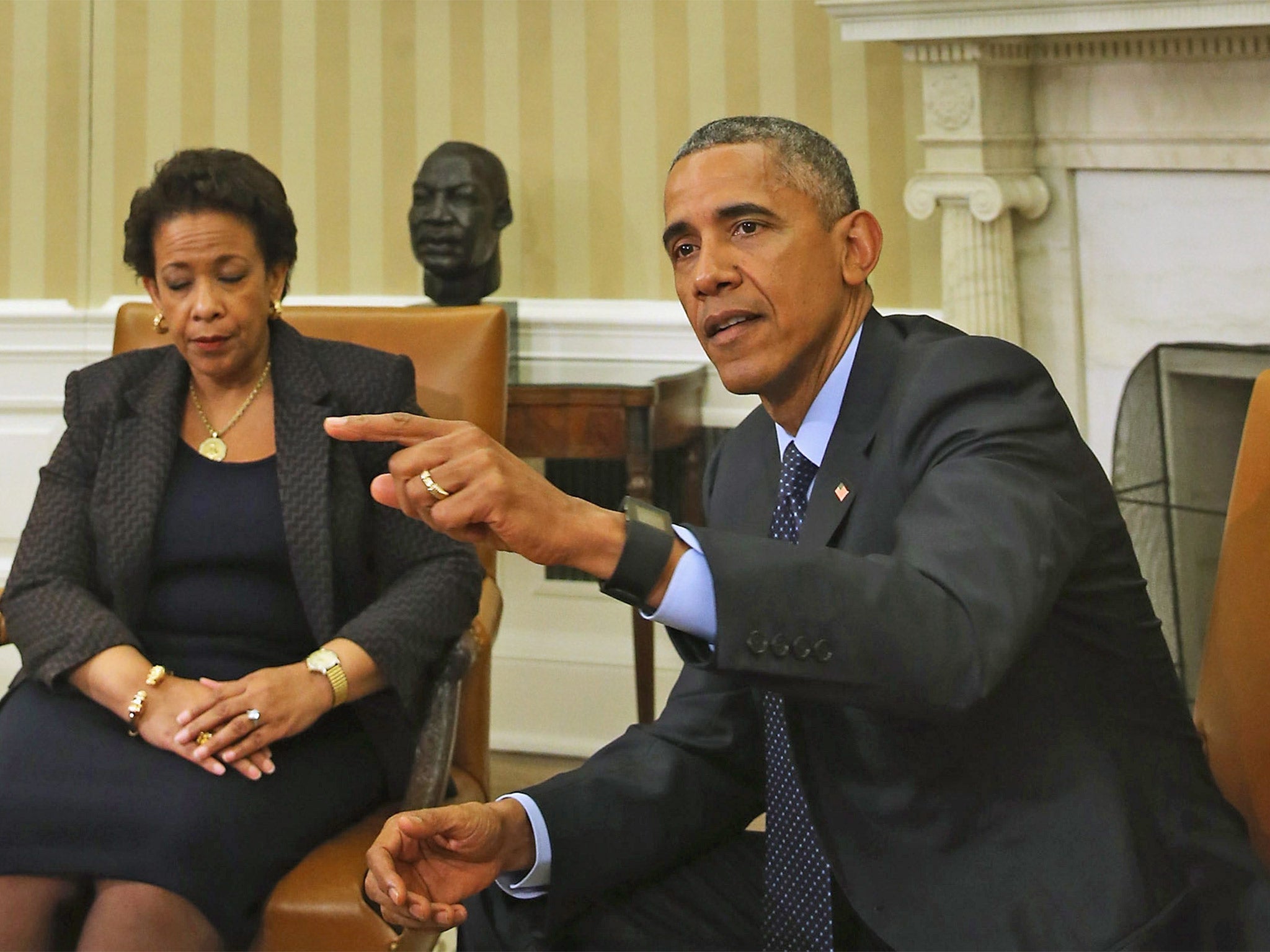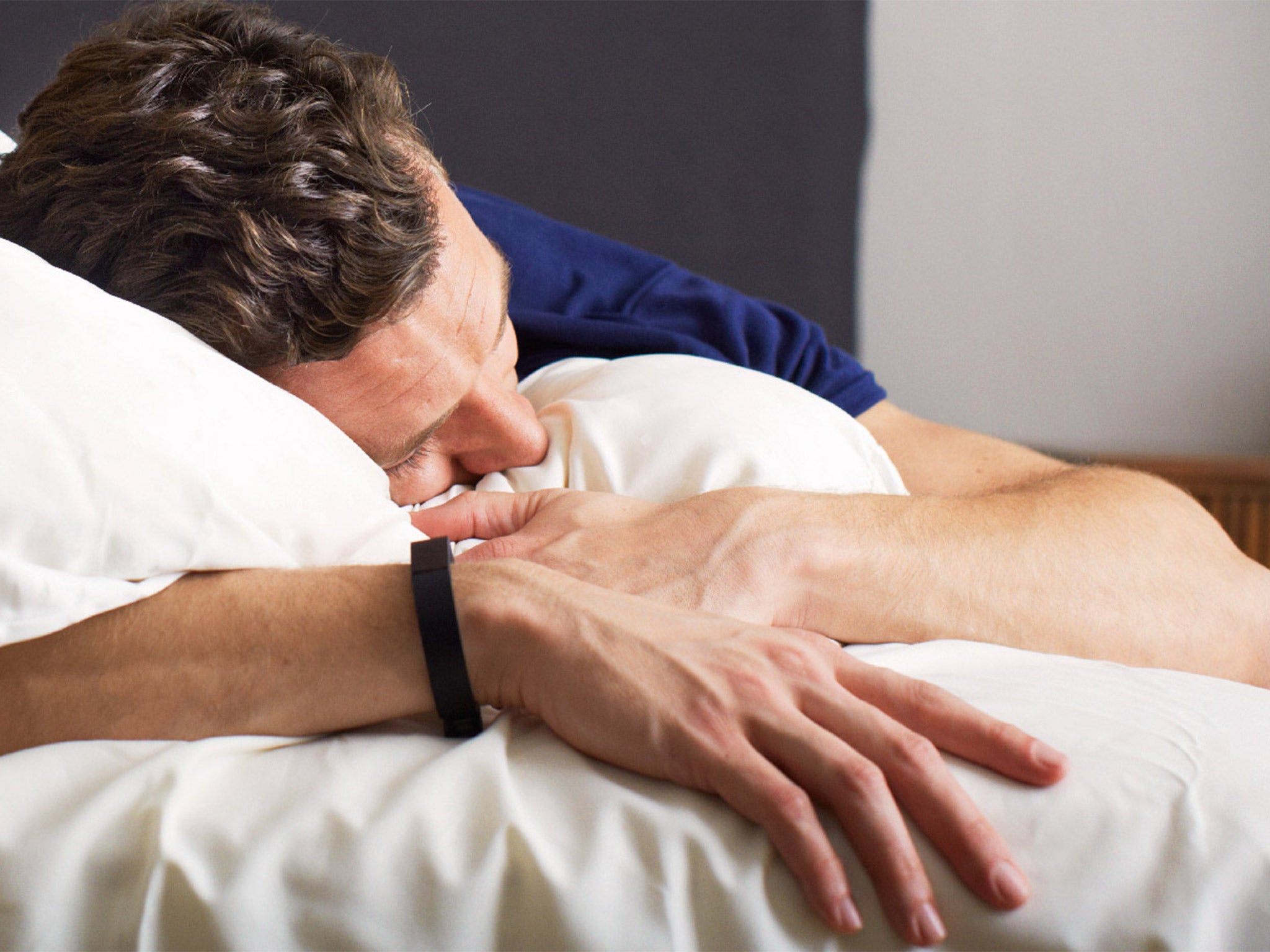March of the Fitbit: Health trackers have gone mainstream, and businesses are looking to monetise our movements
Fitness trackers have gone from being the preserve of health fanatics to a mainstream must-have. Even Obama sports one, reports Simon Usborne

Your support helps us to tell the story
From reproductive rights to climate change to Big Tech, The Independent is on the ground when the story is developing. Whether it's investigating the financials of Elon Musk's pro-Trump PAC or producing our latest documentary, 'The A Word', which shines a light on the American women fighting for reproductive rights, we know how important it is to parse out the facts from the messaging.
At such a critical moment in US history, we need reporters on the ground. Your donation allows us to keep sending journalists to speak to both sides of the story.
The Independent is trusted by Americans across the entire political spectrum. And unlike many other quality news outlets, we choose not to lock Americans out of our reporting and analysis with paywalls. We believe quality journalism should be available to everyone, paid for by those who can afford it.
Your support makes all the difference.As I write this shortly after 11am, my watch tells me I have completed 3,580 steps so far today, covering 2.79km on foot. I've walked up 17 floors and my heart is beating 61 times a minute. Meanwhile my phone has automatically recognised, via my Fitbit device, my cycle ride to work. And it tells me that I slept well last night – seven hours and 11 minutes, with only 27 restless minutes.
A lot of people are bothering themselves with this kind of data this week. Fitness trackers are not new, but there are signs that demand is tipping devices already embraced by fitness and data fiends firmly into the mainstream. And as exercise sceptics start to track themselves, big business and the insurance industry are waking up to the potential value strapped to our wrists.
In the two days after Christmas, the Fitbit app for the iPhone, which pairs with the company's watches, hit the top of Apple's US download chart, and the top 10 in the UK. A lot of people, including my wife, had found Fitbits under their Christmas trees, and are now resolving to hit the standard daily recommended target on most devices of 10,000 steps.
At the Consumer Electronics Show in Las Vegas this week, tech companies are racing to launch yet smarter devices. On Tuesday, Fitbit announced its new Blaze device, which looks a tiny bit like an Apple Watch. Rival firms Mio, Misfit and Under Armour have also announced bands, while tech giants Microsoft, Samsung and Garmin continue to stride into the market.
Fitbit's new smart bra will contain heart and motion sensors for women who don't want a cluttered wrist. But it's the familiar real estate above the hand that tech companies want as they increasingly try to appeal beyond the fitness market.They're targeting people like my wife, Jess. She isn't that techy or sporty, but after I started wearing a Fitbit a few months ago, she asked for one for Christmas. She wanted the motivation to do more.
So far, Jess has worn her Charge HR device almost constantly, and has felt compelled to find ways to fit more walking into her life. She paces about while on the phone, but has also been caught swinging her hand while sitting on the sofa to fool her watch into adding more steps. (These things, which use sensors to determine steps, are not that smart – I recently hit my 10,000 step target while lifting a pint of beer to my mouth.)

I was equally attached to my watch, and was walking more, but I started to wear it less as the novelty of the data and virtual achievement badges wore off. Retention is a challenge in fitness tracking, which makes Barack Obama a model wearer. Last week, a Fitbit Surge (the model I have) was visible on his wrist during an online interview he gave to the comedian Jerry Seinfeld. He got his watch almost a year ago. That's dedication.
It may be that Obama's life insurance policy, if a president can get such a thing, requires him to wear it. Either that or – and this is even less likely – he's doing it for the Starbucks vouchers. Because innovators out there are using and fueling the fitness tracker trend by offering incentives to keep us wearing them in return for our data and trade.
James Hughes is an active 33-year-old who has no interest in fitness data. When his first child arrived last March, he got some life insurance. A broker recommended Vitality Health, one of Britain's largest health and life insurance providers. Policyholders who wear fitness trackers can link their device apps to their accounts and swap steps for discounts on gym memberships, running shoes, bikes – and their insurance premiums. The more they step, the more they gain or save.
Hughes has worn a Fitbug Orb since March and easily earns the maximum 40 Vitality step points available each week. Accumulated points can lift a member from the starting "bronze" status up to platinum. Each level comes with bigger rewards, also including free coffee, cinema tickets and flight discounts. The scheme's partners, which include Starbucks and Virgin Active, gain access to motivated customers, while companies who offer health insurance know that their employees are incentivised to be healthy, and less likely to take sick leave. Vitality, meanwhile, can offer more competitive premiums while also reducing the likelihood of payouts.
Hughes, who works in property and lives with his wife Nancy in Cambridge, isn't bothered about free Starbucks. He just wears his Fitbug to keep his premium affordable. "If I keep going, I'll get gold status before March when my policy gets renewed, which will mean my premium won't increase," he says. Nick Read, Vitality's commercial director, won't say how many of the firm's almost 900,000 customers take part in the rewards scheme. But, he says, "we've certainly seen an explosion in wearable tech in the past year... and a 150 per cent increase in people getting their maximum exercise points every month".

Those without insurance policies can also gain rewards via Bounts, a scheme that leapt out of an Oxford University startup lab in 2013. It also equates steps to points and, like Vitality's system, offers rewards for other things including gym visits. Users can also link their Sainsbury's online shopping accounts. "The lower the amount of sugar in your shop, the more points you get," says Bounts founder John Stuart.
Bounts also enjoyed a Christmas rush. Stuart now has almost three million members, with a target of eight million by the end of this year. He expects a lot of that growth to be corporate, as firms sign up employees to help them hit their social responsibility targets. "We also have a 15-year-old who was overweight and verging on depression," he says. "Her parents got her Bounts and a Fitbit and she's happier and has lost a stone in weight."
Nobody has to wear a tracker, but there are inevitable concerns about the Orwellian overtones of electronic tags that influence our behaviour and share data with corporations or insurance companies. "A lot of my colleagues said it was a bit Big Brother, but I've never seen it that way," James Hughes says. "It's just a pedometer, it doesn't know my location or anything else." Other devices, including mine, do monitor more, but Vitality and Bounts say they have strict rules for data, which is anonymous when it is shared with third parties.
A global survey by Accenture this time last year suggested that 8 per cent of us use fitness trackers. That figure will be significantly higher now, particularly in the US and UK, but it's clear there is huge potential for growth. Rewards notwithstanding, there is also huge potential for these devices to end up in desk drawers, counting hours but no steps. I could go either way. But right now it's 4pm and I'm not even up to 5,000 steps, so I'd better get on.
Join our commenting forum
Join thought-provoking conversations, follow other Independent readers and see their replies
Comments